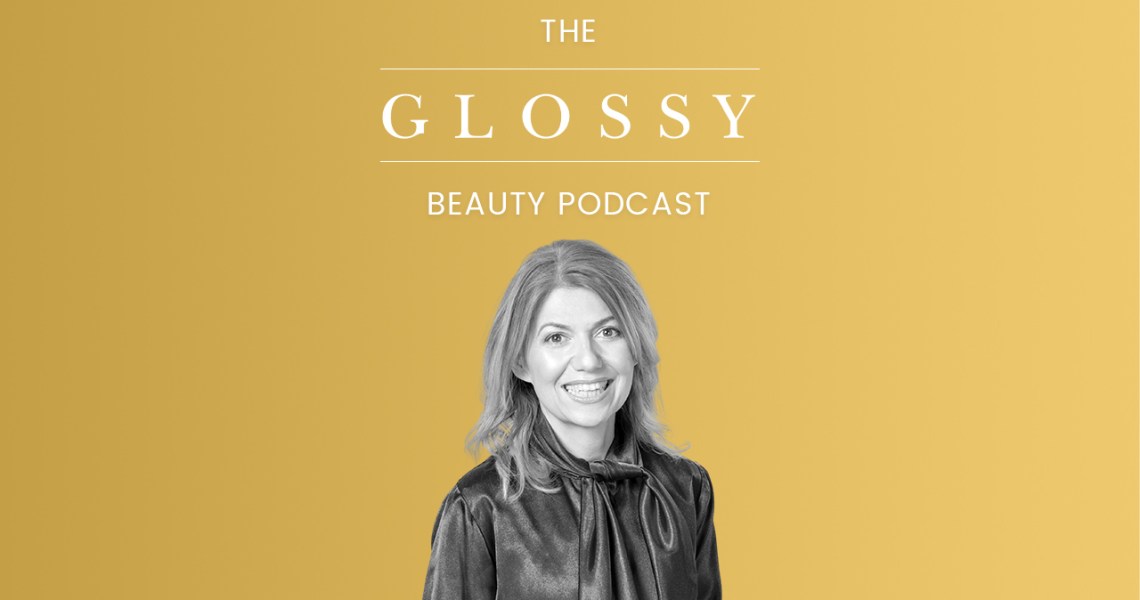Subscribe: Apple Podcasts | Stitcher | Google Play | Spotify
The coronavirus pandemic has created more uncertainty for brick-and-mortar locations, but it’s an opportunity for companies to ramp up the expertise and service stores were known for digitally.
“That is not going away,” Unilever Prestige Group CEO and evp Vasiliki Petrou said in regard to virtual consultations and other digital innovations. “It just will grow stronger. Being future fit is definitely taking that muscle to the next stage,” she said on the Glossy Beauty Podcast of the group’s brands such as Tatcha and Murad.
And while that aspect of a brand’s presence demands evolution, Petrou thinks that conversely, consumers these days are especially attracted to hero products from the brands they know and love.
“In crisis people tend to go back to the bigger, credible, iconic products versus, let’s say, the more ‘discovery’ ones,” Petrou said. “Consumers want to go to a safe haven.”
Petrou wouldn’t confirm or deny rumors that Unilever Prestige was in talks to acquire British makeup brand Charlotte Tilbury, only teasing that “some [rumors] are true, some are not.” But she did explain the company’s overall approach to M&A.
“We’re always about founder-led brands. We’re always looking at new business models, new approaches, whether there’s a big idea that’s globally relevant, and definitely looking at all categories,” Petrou said.
Ad position: web_incontent_pos1
Here are a few highlights from the conversation, which have been lightly edited for clarity.
Note: This interview was recorded before the wave of protests that has swept the U.S. in response to George Floyd’s murder on Memorial Day. The conversation thus does not contain any reference or discussion of the most current events.
Legacy products are a refuge for shoppers
“There’s always a push by retailers to offer the new, because if you think of their perspective, they want to excite customers. These are conversations we’ve had with retailers: ‘How much core and how much new?’ There are all these healthy debates between the two. But I think they as well, during this crisis, have seen the power of the iconic, of the core products. Because in crisis people tend to go back to the bigger, credible, iconic products versus, let’s say, the more ‘discovery’ ones. Consumers want to go to a safe haven, if that makes sense, versus trying to discover what’s out there.”
Retail will survive
“I’m an optimist about people going back to stores. Maybe we’re overdramatizing how much people are going to shift completely into virtual, and stores are going to be empty. I don’t think so. Also, China has shown that people go back to stores pretty quickly. People want people. They want to communicate, whether it’s with friends, communities, advisers, experts… I truly believe that people will go back to stores. Will people do more virtual versus before? Absolutely. Because you kind of got used to ordering for food or for your hair color or skin care. Will retail need to reinvent itself a bit more, focus more on experiences and face-to-face consultation? Absolutely. But I definitely don’t think we’re looking at the death of retail.”
Enabling product discovery online
“Two things: content, content, content. More relevant content versus more product. People really are looking for real and expert advice to get a solution to what they’re looking for. And then: access online to expertise, whether it’s chatting with a therapist, a hairdresser, or an expert — whoever that expert is, I think this is a muscle that has proven to be a good muscle during Covid[-19], and I would predict that retailers will continue.”
Ad position: web_incontent_pos2
Unilever Prestige’s approach to M&A
“We have a forward-thinking approach to M&A. Much more humble, future-fit. We also have the luxury to choose the companies that we want to partner with, and purpose is obviously what is at the center of everything we do. We’re always about founder-led, future-fit brands. We’re always looking at new business models, new approaches, whether there’s a big idea that’s globally relevant, and definitely looking at all categories — maybe not fragrances for the time being, because over time fragrances have gotten a bit commoditized. That is changing now a little bit, but we’re looking at our priorities. It’s all about finding a great brand with a true purpose and a mission to change the world. This is what motivates us.”




